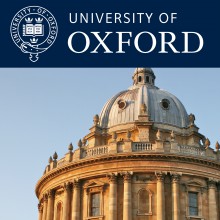
Relevant Links
Sessions from Conference held on January 11th-12th 2018, MBI Auditorium, Corpus Christi College, Oxford. Organizers: Matteo Grasso, Anna Marmodoro, Warren Finegold.
It's a common accepted assumption that reality includes the chemical, biological, and psychological, but are they anything over and above the physical? Or can they all be reduced somehow to the physical? Reductionism has been challenged by various forms of emergentism, which many philosophers still see as unsatisfactory. One alternative way to think about this issue, which has recently come to the fore in the metaphysical debates, is along the lines of Aristotle's Hylomorphism, a view that takes structure and organization to play a pivotal metaphysical role. The aim of this conference is to discuss the assumptions of Hylomorphism, and how it bears on reductionism in relation to special sciences (such as chemistry and biology) and in the philosophy of mind
| # | Episode Title | Description | People | Date | |
|---|---|---|---|---|---|
| 5 | Hylomorphic Structure, Emergence, and Supervenience | William Jaworski argues why the hylomorphic structure is the best (and perhaps only) thing that can explain the persistence of individuals that change their matter over time. | William Jaworski | 27 Feb 2018 | |
| 4 | A Biologically Informed Hylomorphism | Utilising recent advances in developmental biology, Christopher Austin argues that the hylomorphic framework is an empirically adequate and conceptually rich explanatory schema with which to model the nature of organisms. | Christopher J Austin | 27 Feb 2018 | |
| 3 | Dependent Powerful Qualities and Grounded Downward Causation | David Yates argues that some physically realised qualitative properties have their causal roles solely in virtue of being the qualities they are, and not in virtue of the powers bestowed by their physical realizers on a given occasion. | David yates | 27 Feb 2018 | |
| 2 | Hylomorphism, natural science, mind and God | Howard Robinson argues that the early moderns were right to think that Aristotelian or scholastic hylomorphism was inconsistent with modern science. | Howard Robinson | 27 Feb 2018 | |
| 1 | Modal Epistemology and the Formal Identity of Intellect and Object | A defence of the Formal Identity Thesis and of the immateriality of the human intellect, based on specifically epistemological arguments about our knowledge of necessary or essential truths, including especially essential truths about value. | Robert Koons | 27 Feb 2018 |
